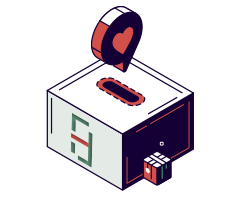The educational sector in Lebanon has been hit hard. The October 2019 uprising, the ongoing economic crisis, the spread of COVID-19 and the Beirut blast which hit the capital on August 4 have taken a toll on the already struggling educational institutions.
As per the Educational Center for Research and Development, during the school year 2019-2020, 52.2% of the students were enrolled in private schools, whereas 32% of the students were enrolled in public schools, 12.5% in government-subsidized “free” private schools and 3.3% in UNRWA schools. However, it is estimated that in the school year 2020-2021, around 35,000 students have switched from private to public schools in addition to an increase in the number of dropouts because their parents can no longer afford to pay the tuition fees.
The accelerated spread of the Novel Coronavirus pandemic that has struck the entire planet, has had an even greater impact on the Lebanese schooling system due to the lack of a proper infrastructure that would allow students to continue their education online. Without any reliable electricity or internet, not to mention the lack of tablets and laptops, both students and teachers are struggling to continue with the online education model.
Despite the lockdown with many towns being classified as Red Zones and the surge in the confirmed number of coronavirus cases, many schools in Lebanon have opened. Some are adopting the blended learning model, a combination between online and in person learning, while others are receiving the students on a daily basis. These schools are following the preventative measures set by the Ministry of Education with the collaboration of the Ministry of Health in terms of constantly sanitizing, wearing masks, and keeping a safe distance among the desks of the students.
The educational sector in Lebanon in suffering from the lack of financial support
Many parents were thrilled to have their children go back to school since the online model proved itself to be a complete failure last year; however, they found themselves struggling financially because of the exponential increase in the price of the stationery, books and all the materials that the children will need. The situation is even worse for parents whose children attend public schools because they are mostly from the low income households.
The Beirut Port explosion has also aggravated the situation. According to a study conducted by The World Bank, the explosion caused $15-$20 million dollars in damages in education facilities in Beirut and Mount Lebanon areas. It is estimated that the blast has destroyed around 90 public and 109 private primary and secondary schools, as well as 27 universities and 22 technical and vocational schools. According to UNICEF, the education sector in Lebanon requires $6,619,800 in assistance to rehabilitate and repair these damaged facilities.
The downward spiral of the local currency combined with the dire economic situation, has resulted in laying off many teachers or reducing their salaries to half. The same applies to parents who are finding themselves forced to make the choice between providing food and shelter for their children or the proper education that they deserve.
The future of many students is at risk if the educational system in Lebanon does not receive the aid it needs. Many educational institutions will be forced to shut down; many students will have to drop out.
